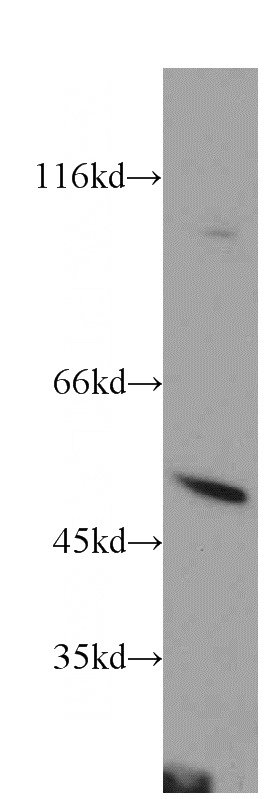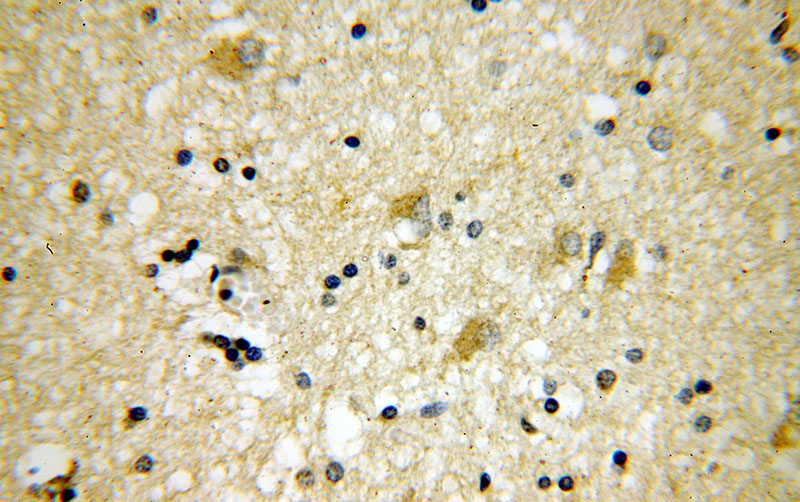-
Product Name
PSTPIP1 antibody
- Documents
-
Description
PSTPIP1 Rabbit Polyclonal antibody. Positive WB detected in mouse thymus tissue. Positive IHC detected in human brain tissue. Observed molecular weight by Western-blot: 45-48kd
-
Tested applications
ELISA, WB, IHC
-
Species reactivity
Human,Mouse,Rat; other species not tested.
-
Alternative names
CD2 binding protein 1 antibody; CD2BP1 antibody; CD2BP1L antibody; CD2BP1S antibody; H PIP antibody; PAPAS antibody; PSTPIP antibody; PSTPIP1 antibody
-
Isotype
Rabbit IgG
-
Preparation
This antibody was obtained by immunization of PSTPIP1 recombinant protein (Accession Number: NM_003978). Purification method: Antigen affinity purified.
-
Clonality
Polyclonal
-
Formulation
PBS with 0.02% sodium azide and 50% glycerol pH 7.3.
-
Storage instructions
Store at -20℃. DO NOT ALIQUOT
-
Applications
Recommended Dilution:
WB: 1:200-1:1000
IHC: 1:20-1:200
-
Validations

mouse thymus tissue were subjected to SDS PAGE followed by western blot with Catalog No:114255(PSTPIP1 antibody) at dilution of 1:300

Immunohistochemical of paraffin-embedded human brain using Catalog No:114255(PSTPIP1 antibody) at dilution of 1:50 (under 40x lens)
-
Background
PSTPIP1 (proline-serine-threonine phosphatase interacting protein 1), also known as CD2BP1, is a cytoskeleton-associated adaptor protein that links PEST-type phosphatases to their substrates (PMID: 19584923). It is involved in regulation of the actin cytoskeleton. Preferentially expressed in hematopoetic tissues, PSTPIP1 binds to the cytoplasmic tail of CD2, negatively affecting CD2-triggered T cell activation (PMID: 16670297). It has also been shown to interact with ABL1, PTPN18, WAS, CD2AP, PTPN12 and MEFV/pyrin. Mutations in the gene of PSTPIP1 cause PAPA syndrome (Pyogenic sterile Arthritis, Pyoderma gangrenosum, and Acne), an autoinflammatory disease (PMID:11971877; 14595024).
Related Products / Services
Please note: All products are "FOR RESEARCH USE ONLY AND ARE NOT INTENDED FOR DIAGNOSTIC OR THERAPEUTIC USE"
